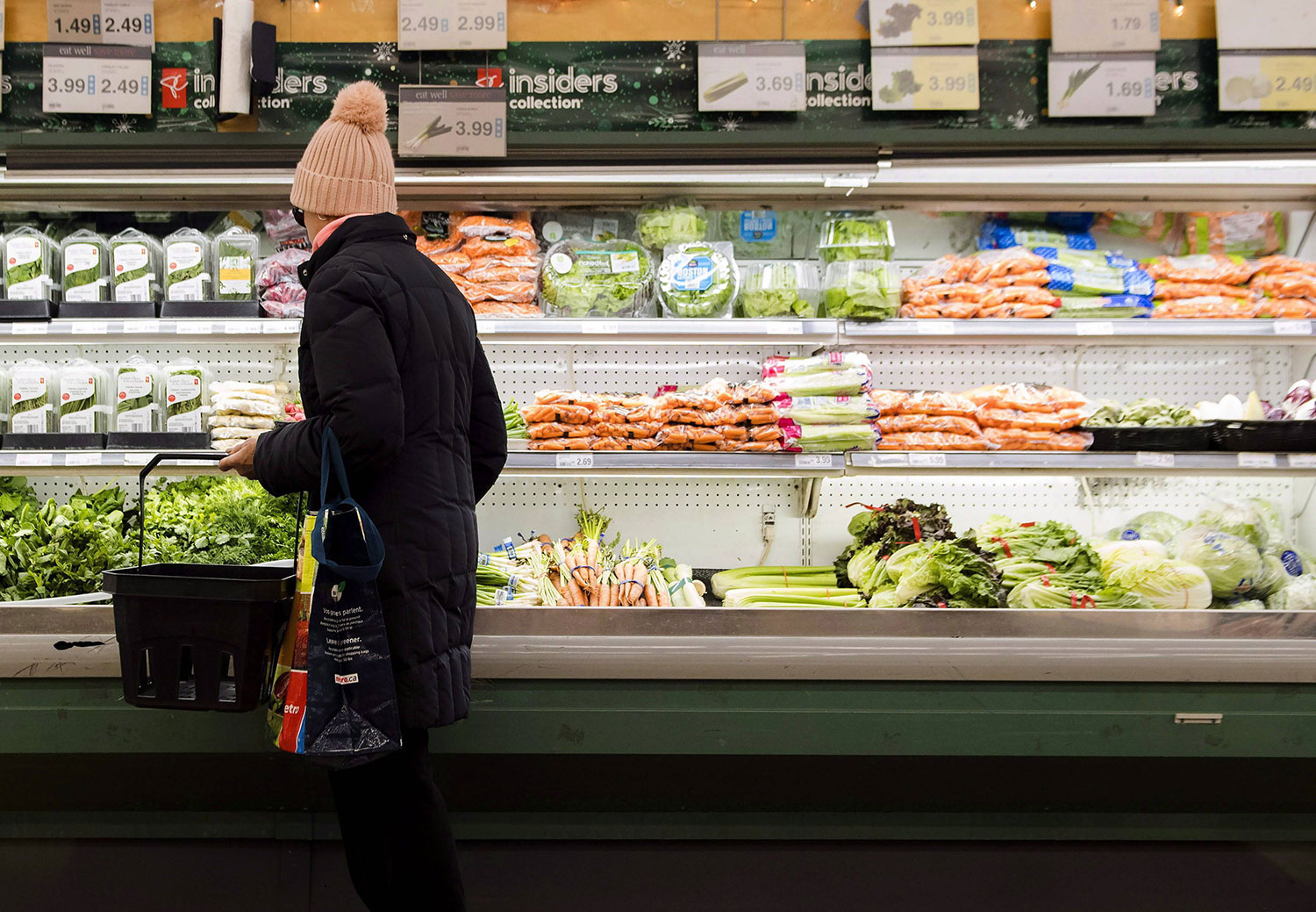Do you know where your food comes from?
The federal government is getting ready to roll out a five-year, multimillion-dollar ad campaign this summer in the hope that teaching the public how Canadian farms operate and what their standards are will get more people to “buy Canadian.”
According to a contract notice posted on Monday morning, Agriculture Canada is looking for a marketing firm to help it launch a “social marketing campaign to better connect Canadians with, and instil pride in, Canada’s food system and its agriculture, food and seafood products.”
The official name for that project is the “Buy Canadian Promotion Campaign,” and it comes amid a major shift in consumer eating habits towards plant-based proteins and questions about the environmental impacts of industrialized global farming.
READ MORE: Biggest food trends for 2020 include meat alternatives, CBD products
Over the course of the campaign, the government plans to spend between $1.5 million and $4 million each year to do things like refresh the branding of Agriculture Canada and the Canadian Food Inspection Agency and find ways to put Product of Canada stickers on more Canadian food items.
It’ll also put the focus on creating campaigns that can tug at the heartstrings.
“The campaign should tell the story of Canada’s agri-food sector and reach audiences on an emotional level in order to instil pride and confidence in the country’s food systems,” the notice of the contract states under a section outlining the goals of the project.
The campaign will specifically target women, seniors and Indigenous people, among other demographic groups, in a wide-ranging “digital-first” push that’ll include promoting Canadian farmers and farm practices on social media and through “activities with media outlets.”
READ MORE: More than half of Canadians want to eat less meat, survey finds
The campaign comes after the Liberals promised last year to give Agriculture Canada roughly $25 million to come up with a national plan to “better connect Canadians with” their food and after consultations in which the agricultural industry apparently expressed concerns about a lack of awareness about how it operates.
“Research has found that Canadians are becoming increasingly disconnected from how food is produced,” the statement of work says.
“Canadians are faced with making increasingly complex decisions about their food purchases with social, health, environmental and/or economic influences and factors coupled with an increasing number of global offerings that have varying claims and attributes.
“Industry expressed concern regarding a disconnect with Canadians that often result in demands being placed on the sector to adapt practices in ways that do not optimally achieve desired results and that can actually have adverse impacts.”
It did not explain what those demands are from consumers or what the agricultural industry feels are the “adverse impacts” of those demands.
But a 2018 survey by researchers at Dalhousie University found more than half of Canadians want to eat less meat amid concerns about their health and the environmental impact of farming as well as concerns about animal welfare.
READ MORE: Boycotting U.S. products? Here’s how to buy Canadian during a trade war
It’s not the first time efforts to “buy Canadian” have made headlines in recent years.
After U.S. President Donald Trump imposed steep tariffs on Canadian steel and aluminium in 2018, many Canadians took to social media to proclaim their pledge not to buy American products until the tariffs were removed.
That boycott led to how-to guides on stocking up on Canadian products at grocery stores and malls.
READ MORE: Alberta beef producers meet with Weather Network over tweet that infuriated meat eaters
However, that also raised questions among trade experts about whether such campaigns could have unintended consequences, particularly when it comes to decisions about processed products rather than fresh produce, which can be more easily identifiable as a local product.
One of the examples cited as potentially complicated was ketchup: specifically, if a consumer boycotted Heinz and French’s (both American companies) in favour of President’s Choice, a Canadian company, but ignored the fact that French’s also has a plant in Ontario that employs Canadian workers.
Those tariffs were finally removed in May 2019.
But it remains to be seen how the upcoming campaign will address some of the challenges raised from the boycotts around industrialized food supply chains as well as the shifting eating habits of Canadian consumers.
Jennifer Clapp, a professor with the University of Waterloo who holds the Canada Research Chair in Global Food Security and Sustainability, said given Canada imports a significant amount of its food products, shifting the focus onto domestic producers could make sense given the global uncertainty.
“In the current context of heightened uncertainty in global markets, it is rational for governments that rely on imported foods to strengthen domestic agricultural markets,” she told Global News in an email.
Clapp also added that despite rising food prices, some could still choose to “Buy Canadian” even if it costs more for one big reason.
“For many Canadians, it is a matter of national pride to buy Canadian food products, and they may prioritize buying home-grown food over cost.”
Public opinion research will start this spring, with the campaign set to launch this summer.
Source: Originally posted at Global News January 20, 2020.




